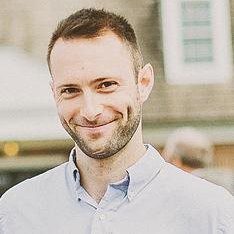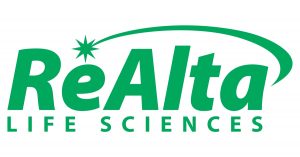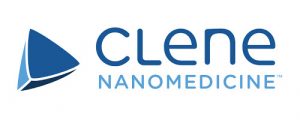
TEDCO Heats up the Summer with These Life Science Investments
KaloCyte, Galen Robotics, and Longeviti Neuro Solutions Bring in More Support from Maryland State Funder
By Sam Hopkins
August 11, 2023
| BioBuzz has been connecting the life science workforce since 2009. We’ve built an expansive community in the Mid-Atlantic with a national readership that spans from Massachusettes to Florida, and New York to California. For our next chapter, we’re building a proprietary talent logistics model to help employers source and hire life science talent. Learn more. |
TEDCO continues to scan the local early-stage company landscape for technology companies that it can invest in, providing resources for those companies to put down roots and grow in Maryland. TEDCO’s track record as an investor and advisor drives a competitive application process for a variety of funds, and even in the summertime when vacation seems to take priority for many established firms, TEDCO matches the year-round entrepreneurial vigor of its portfolio companies by breaking news of fresh investments.
Let’s take a look at three emerging Baltimore companies where TEDCO invested $500,000 into each:
KaloCyte, Inc. is a Baltimore-based company specializing in the creation of innovative artificial red blood cells (RBCs), a system it calls ErythroMer. KaloCyte moved to Baltimore from St. Louis in Fall 2019, and it has since added team members and built on the foundation it laid in the Midwest through work on the University of Maryland School of Medicine campus.
In 2020 KaloCyte received a $300,000 investment from the Maryland Momentum Fund, a venture fund of the University System of Maryland, to advance its preclinical development of an artificial red blood cell substitute. ErythroMer is stored and delivered as a dried product and activated to mitigate blood loss in civilian and military trauma scenarios where there is a danger of deadly hemorrhage.
Hemorrhage results in up to 60,000 deaths per year in the US, climbing to as many as 1.5 million worldwide. Preventing those deaths means thinking differently about how blood is stored, transported, and administered to patients in emergencies. KaloCyte’s promise is supported by the $10 million it has received in grants and investor funding, and this year TEDCO put in $500,000 from its State Small Business Credit Initiative (SSBCI).
Galen Robotics, based at the Baltimore Innovation Center in the city’s Pigtown area also received a $500,000 investment from TEDCO’s Seed Funds to further develop its surgical robotics platform.
The Laboratory of Computational Sensing and Robotics at Johns Hopkins University was the research base of the technology that was commercialized to become Galen Robotics, licensing technology developed by Russell Taylor, the lab’s director. Galen originally based its development team in Silicon Valley, but relocated its HQ to Baltimore, tapping student talent and funding including the Johns Hopkins Technology Ventures Cohen Translational Engineering Fund to move forward.
The company uses assistive technology in the operating room to improve the human-machine interface in surgery and bring innovative techniques with high patient benefit to unserved markets. Its assistive technology improves workflow for surgeons in the operating process through mechanical stability and ergonomic improvements.
Galen has defined key areas of emphasis including microsurgery, digital surgery, and robotic surgery–surgical robotic technologies that have expanded in use but left gaps in access. Surgical robotics has been utilized by healthcare companies to maximize potential reimbursement, but Galen’s leadership see the potential for much farther-reaching uses of assistive technologies and techniques.
The American Head and Neck Society gave Galen Robotics CEO Bruce Lichorowic the Gold Shark Tank Award after the conference’s Shark Tank competition in 2023, where Galen competed against two other companies with potential to advance head and neck procedures. Also this summer, the company achieved a significant milestone with de novo clearance for its digital surgical assistant for ENT operations, part of its “digital-surgery-as-a-service” platform.
Finally, Longeviti Neuro Solutions of Hunt Valley received a $500,000 investment from TEDCO’s Venture Funds. Longeviti focuses on advanced solutions for complex brain surgeries, aiming to restore anatomical normalcy while implementing innovative functional neurotechnology.
Longeviti was born of a partnership with Johns Hopkins and produced several implants under the ClearFit brand for post-operative restoration of anatomical normalcy. Their low-profile intracranial device platform has achieved multiple FDA clearances including for the InvisiShunt allowing for draining of fluids from the brain.
TEDCO’s half-million dollar investment in Longeviti through the State Small Business Credit Initiative adds to the organization’s previous $100,000 Maryland Innovation Initiative, combining with other funds the company has raised to expand its work in functional neurosurgery, neuro reconstruction, neuromodulation, and neurovascular surgery.
- About the Author
- Latest Posts
Sam Hopkins has spent the past decade in the Baltimore area life-science and healthcare ecosystem, including roles at Johns Hopkins, the University of Maryland, the U.S. Army, and early-stage companies. He spent the previous decade as a journalist, which saw him cover everything from clean energy conferences in Morocco, to Soviet-era Estonian rock’n’roll, to trailblazing CEOs in Timonium. Sam is an avid athlete and coach, and he lives with his wife and two sons in Baltimore’s Oakenshawe neighborhood. You can often find him around town spinning records as DJ Balagan, or performing in musical groups Sink and South of Boundary.







